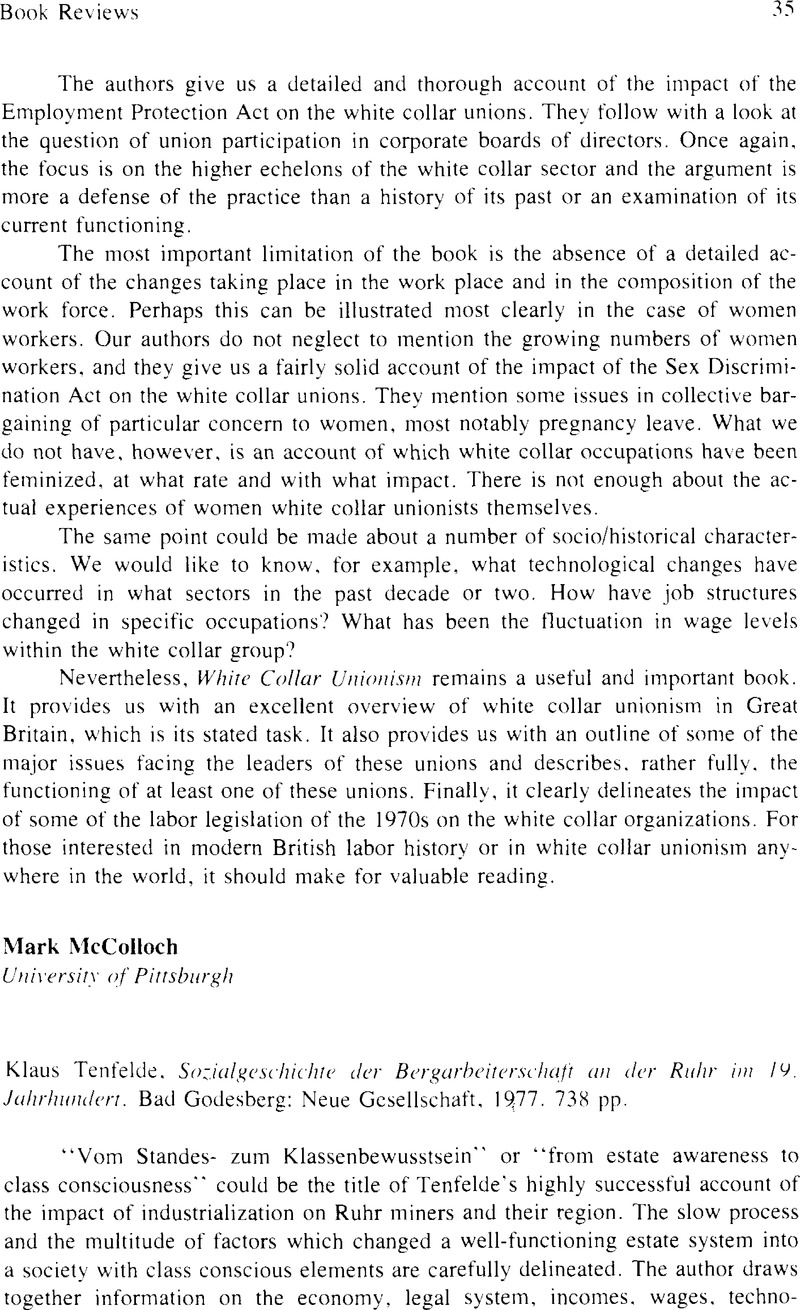No CrossRef data available.
Article contents
Klaus Tenfelde, Sozialgeschichte der Bergarbeiterschaft an der Ruhr im 19. Jahrhundert. Bad Godesberg: Neue Gesellschaft, 1977. 738 pp.
Published online by Cambridge University Press: 16 December 2008
Abstract

- Type
- Book Reviews
- Information
- Copyright
- Copyright © International Labor and Working-Class History, Inc. 1980
References
NOTES
1. Among the most significant: with Ritter, G.A.. “Der Durchbruch der Freien Gewerkschaften Deutschlands zur Massenbewegung im letzten Viertel des 19. Jahrhunderts,” in Vetter, H.O., ed., Vom Sozialistengesetz zur Mitbestimmung (Köln, 1975), 61–120Google Scholar; “Radikale Strömungen in der Ruhrbergarbeiterschaft 1905–1919,” in Mommsen, H., ed., Glück auf, Kameraden' Die Bergarbeiter und ihre Organizationen in Deutschland (Köln, 1979)Google Scholar; “Der bergmännische Arbeitsplatz in der Hochindustrialisierung (1890 bis 1914),” in Conze, W. and Engelhardt, U.. eds., Arbeiter im Industrialisierungs prozess (Stuttgart, 1979)Google Scholar; “Probleme der Organisation von Arbeitern und Unternehmern im Ruhrbergbau 1890–1918,” in Mommsen, H.. ed., Arbeiterbewegung und industrieller Wandel (Wuppertal, 1980), 38–61.Google Scholar
2. One of the few regional studies that Tenfelde has not consulted finds that until the expansion of the 1850s the state officials played a “mothering” role, which the miners not only accepted but sorely missed later. Rothert, L., Umwelt und Arbeitsverhältnisse von Ruhrbergleuten in der 2. Hälfte des 19. Jahrhunderts (Münster, 1976), 28.Google Scholar
3. Sufficient comparable information is simply not available for valid generalizations. A great number of studies such as Crew, D., Town in the Ruhr: A Social History of Bochum 1860–1914 (New York, 1979)Google Scholar is a prerequisite before valid hypotheses on mobility and the basis for labour protest in a diverse area can be developed.




